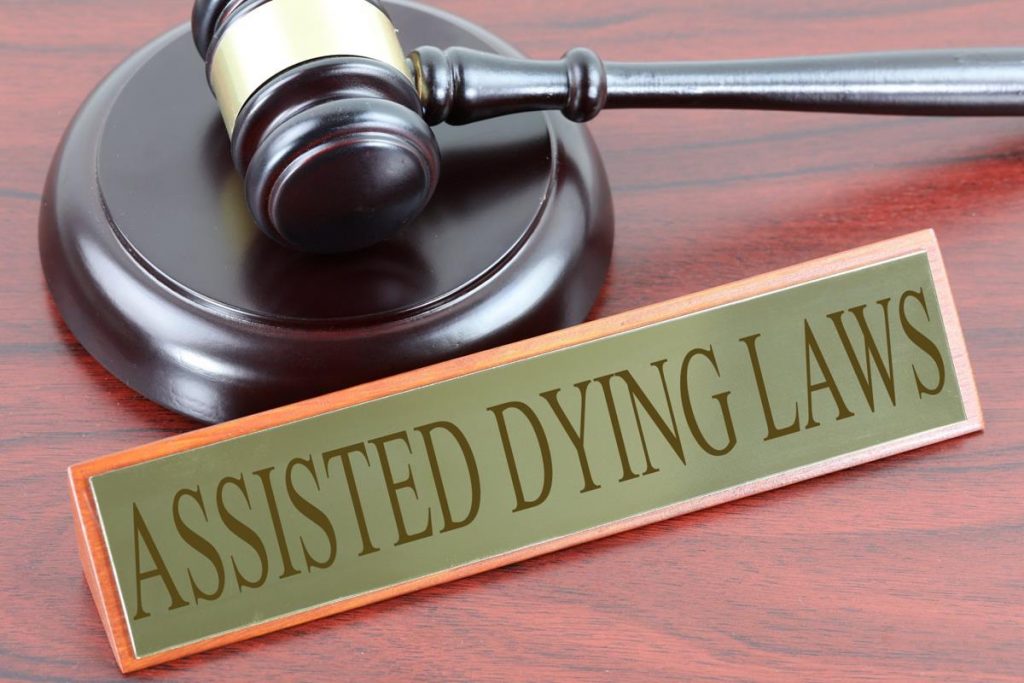
On November 1st 2014, Brittany Maynard ended her life at her home in Oregon, surrounded by friends and loved ones, by taking a lethal medication prescribed legally by a physician. In January of that year she was diagnosed with a grade 2 glioblastoma multiforme and in April it was elevated to grade 4, giving her a prognosis of 6 months. At just 29 years old and through her willingness to speak publicly about her choice, Maynard became the most high profile Physician Assisted Suicide case and ignited nationwide debate over the topic. Maynard moved from her native California to Oregon as at the time only 5 states had “aid-in-dying” acts and California was not one of them. Since her passing, the national discourse on the matter has continued and five additional states as well as the District of Columbia have passed “Death with Dignity” laws. Arizona, however, is not one of them and the question remains: Should terminally ill patients have the right to end their life through medical means?
This question seemingly places the four pillars of medical ethics at odds with each other. When examining beneficence (doing good) vs non-maleficence (doing no harm) one must consider whether ending life, even in the face of suffering, can ever really be doing good for the patient. But at the same time, is prolonging suffering doing harm? With regards to justice, it’s easy to see how the most vulnerable are at risk of coercion and if it would be “fair” to end one’s life. These principles, though, view the issue from the physician’s lens. It’s only through autonomy do we consider the patient’s wishes and should that not be the driving factor in the decision?
Opponents of physician assisted suicide contend that this desire is motivated by pain and that palliative care is a viable alternative. However, palliative care is still not ubiquitous in the United States with only 72% of hospitals with 50 or more beds reporting a palliative care team [1]. Beyond that, though, the most prominent concern for patients at end-of-life is loss of autonomy and loss of dignity [2]. Physician assisted suicide and euthanasia are generally rated highly desirable by patient groups because they do answer such fears and statistics from Oregon and Washington, where PAS has been practiced since 2001 and 2010 respectively, show that many patients who ask for physician assisted suicide and receive lethal prescriptions never use them [3-5]; it’s simply the autonomy that gives them comfort. Some families have even indicated that patients who have the means of a humane death at their disposal gave comfort and confidence to their relatives, thereby enabling them to want to—and actually—live longer [6].
The Arizona legislature has introduced three bills (HB 2254, SB 1775 and SB 1781) for the 2021 legislative session, all aiming to authorize medical aid in dying. Poling over the last five years suggests that Arizonans support doctors being allowed to prescribe lethal drugs by a two to one margin. While no clear moral answer exists, the option may exist to Arizonans in the near future and warrants a discussion.
References
1. Rogers M. Palliative Care Report Card. Center to Advance Palliative Care. Published 2019. Accessed September 13, 2021. https://reportcard.capc.org
2. Werth JL, Gordon JR, Johnson RR. “Psychosocial issues near the end of life.” Aging and Mental Health 2002; 6(4):401–12.
3. Emanuel EJ, Daniels ER, Fairclough DPH, Clarridge BR. “Euthanasia and physician- assisted suicide: Attitudes and experiences of oncology patients, oncologists, and the public.” Lancet 1996; 347(9018):1805–10.
4. Ganzini L, Harvath TA, Jackson A, et al. “Experiences of Oregon nurses and social workers with hospice patients who requested assistance with suicide.” NEJM 2002; 347:582–8.
- Oregon’s Death with Dignity Act 2011. Oregon Public Health Division. http://public. health.orgeongov/ProviderPartnerResources/evaluationResearch/DeathwithDignityAct/ Documents/year14.pdf. Accessed April 5, 2012.
- Norman, Gail. The Ethics of Ending Life: Euthanasia and Assisted Suicide, Part 2 Ethical Questions in Euthanasia and Assisted Suicide. 2012.
Arjun Johal is a member of The University of Arizona College of Medicine – Phoenix Class of 2023. He graduated from the University of California at Santa Barbara in 2016 with a major in Biochemistry and a minor in English. In his free time he enjoys anything that gets him moving, whether it be a bicycle, a surfboard, or anything in between. He also welcomes discussion on topics of all ranges, ideally over a cup of tea. Feel free to contact him at arjunjohal[at]email.arizona.edu

